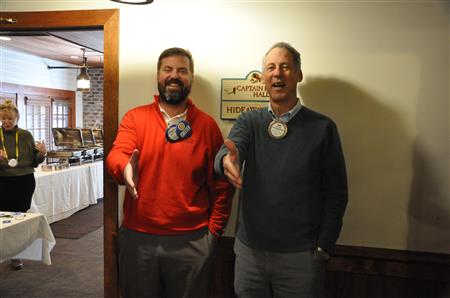
It was great to see so many faces at the meeting on Friday. RCSE inducted a new member - Elaine Ceccacci. Welcome to the club Elaine! After all Rotary business items were discussed, Philip Gillette introduced our speaker for the day, Dr. Jacob South, who talked about genetic counseling.
Most genetic counselors work in cancer centers but are trained in other areas. He sees patients who are high risk and then give them information so they can make an informed choice about their medical care. Only 5-10% of cancer is hereditary. Currently, the cost for a genetic test is $249 and it will test for 87 genes. Once your test is complete and the results are in, Dr. South will meet with the patient to discuss the results.
Dr. South then talked about the two most common genes that are associated with breast and ovarian cancer: BRAC1 and BRAC2. If you test positive for one of these genes, you have a 45-56% chance of developing breast cancer and an 18-40% chance of developing ovarian cancer. The general population has a 12% chance of breast cancer and a 1.7% chance of ovarian cancer. Unfortunately, there is not a good screening tool for ovarian cancer. If you are at a high risk for developing breast cancer, it is recommend to start surveillance at the age of 25 with an MRI and at 30 with a mammogram. There are a few things you can do to help prevent breast and ovarian cancer. For breast cancer, a female can undergo a double mastectomy which would reduce the chance of developing breast cancer by 90-95%. There are also antiestrogen medications which if taken for 5 years can cut your risk in half. For ovarian cancer, if a female is on birth control for 5 years, her risk will be cut in half.
If you are concerned about your family history of cancer, you are encouraged to talk with your physician about whether or not genetic counseling if right for you. You may also contact the genetic counseling office at the Lewis Cancer & Research Pavilion at St. Joseph's/Candler at 912-819-5749.